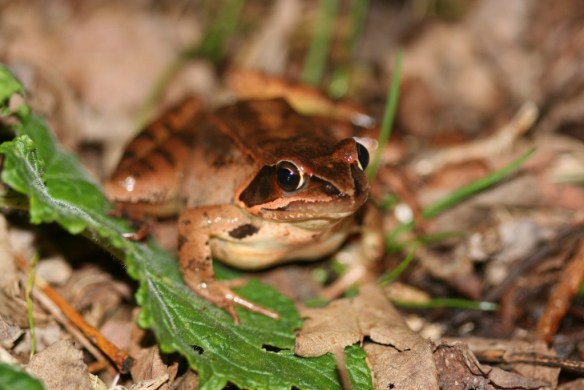by Liz Corry and Glyn Young
 As the State of Nature prepares to release its 2016 report that warns Britain’s wildlife is facing a “crisis” with more than 120 species at risk of extinction due to intensive farming, the British and Irish Association of Zoos and Aquariums (BIAZA) reveals the top ten native species being supported by its members. Three of those species are being supported in Jersey through the work of the Birds On The Edge team and it’s supporters.
As the State of Nature prepares to release its 2016 report that warns Britain’s wildlife is facing a “crisis” with more than 120 species at risk of extinction due to intensive farming, the British and Irish Association of Zoos and Aquariums (BIAZA) reveals the top ten native species being supported by its members. Three of those species are being supported in Jersey through the work of the Birds On The Edge team and it’s supporters.
BIAZA’s Director, Dr Kirsten Pullen, says, “Most people equate zoos and aquariums to holding and protecting animals that are exotic to the UK. Certainly, during their visits, the public expect to see a wonderful range of creatures from all around the world. What is not well-known is that not only do modern zoos do considerable amounts of conservation work globally, they also provide their skills and resources to help wildlife at home.”
Native species conservation efforts are often collaborative with BIAZA members setting up projects with other BIAZA zoos and aquariums as well as wildlife charities and NGOs. Modern zoological establishments provide husbandry expertise, support breeding programmes and help raise funds to ensure Britain’s wildlife has the best chance of survival in the face of increased pressures from climate change, agriculture and persecution.
The red-billed chough (Pyrrhocorax pyrrhocorax), number two in the top ten, is a perfect example. Today, much of Jersey’s coastal habitat, formerly an important resource for farming and grazing animals, is dominated by extensive swathes of bracken. With these changes the Island has seen the loss and decline of many birds such as the skylark, yellowhammer and stonechat.

Red-billed chough in Jersey. Photo by Liz Corry
The Birds On The Edge partnership between the Durrell Wildlife Conservation Trust, States of Jersey Department of Environment and the National Trust for Jersey has, through the active management of Jersey’s coastland, endeavoured to restore populations of birds and bring back the red-billed chough to the Island after an absence of 100 years. Supported by Paradise Park in Cornwall, Durrell began to release captive-bred choughs in 2013. By 2015 the birds had successfully nested in the wild and bred again in 2016, so far resulting in a wild population of 30 individuals (July 2016).
 Another example, and number three on the list, is the agile frog (Rana dalmatina). Jersey is the only place in the British Isles where this frog species can be found. Its population has been declining in both range and numbers since the early 1900s and by the late 1980s there was a single fragile population in the south-west of the Island.
Another example, and number three on the list, is the agile frog (Rana dalmatina). Jersey is the only place in the British Isles where this frog species can be found. Its population has been declining in both range and numbers since the early 1900s and by the late 1980s there was a single fragile population in the south-west of the Island.
To prevent extinction, the Agile Frog Group, a collaboration of local environmental and conservation organisations including Durrell Wildlife Conservation Trust, launched a comprehensive Action Plan detailing threats and actions needed to save the frog. On going research since 2000, habitat restoration, and captive rearing at Durrell for release using collected spawn to tadpole and froglet stage (head-starting) have all helped to increase the species survival chances. Today, nearly 50,000 froglets have been released since the project began in 1987.

Staff monitoring the agile frog release in Jersey. Photo by Gerardo Garcia
A few of the species on the list are absent from the Channel Islands such as the Eurasian beaver (Castor fiber) and common crane (Grus grus). In the case of the cirl bunting (Emberiza cirlus) considered locally extinct in Jersey after an eleven year absence, a few individuals returned naturally and have been nurtured and protected by the Birds On The Edge team ever since. Their numbers have grown steadily from the one pair which settled in 2011 to seventeen individuals including eight young from this year’s breeding season.

Cirl bunting at Grouville, Jersey. Photo by Mick Dryden.
You can learn more about BIAZA’s top ten native species by going to http://www.biaza.org.uk/news-events/Biaza-news/




Great news again, such a terrific well managed project.
I remember Dr. Janet Kear, then Curator of Martin Mere, Wildfowl and Wetlands Trust, and a Member of Council, JWPT, extoling the virtue of ‘in range conservation’ for zoos in general and Jersey in particular. I think, at the time, we may have wondered why. Thank you all at Birds on the Edge for helping us see – and start to meet – the need. Durrell still sets the standard!.
Great news guys, all that hard work paying off
What a pleasure it is to hear of some positive environmental news for a change. Let’s all hope the good vibes can be improved upon and maintained. Top marks Jersey.
Very interesting info!Perfect just what I was looking for!Raise your business